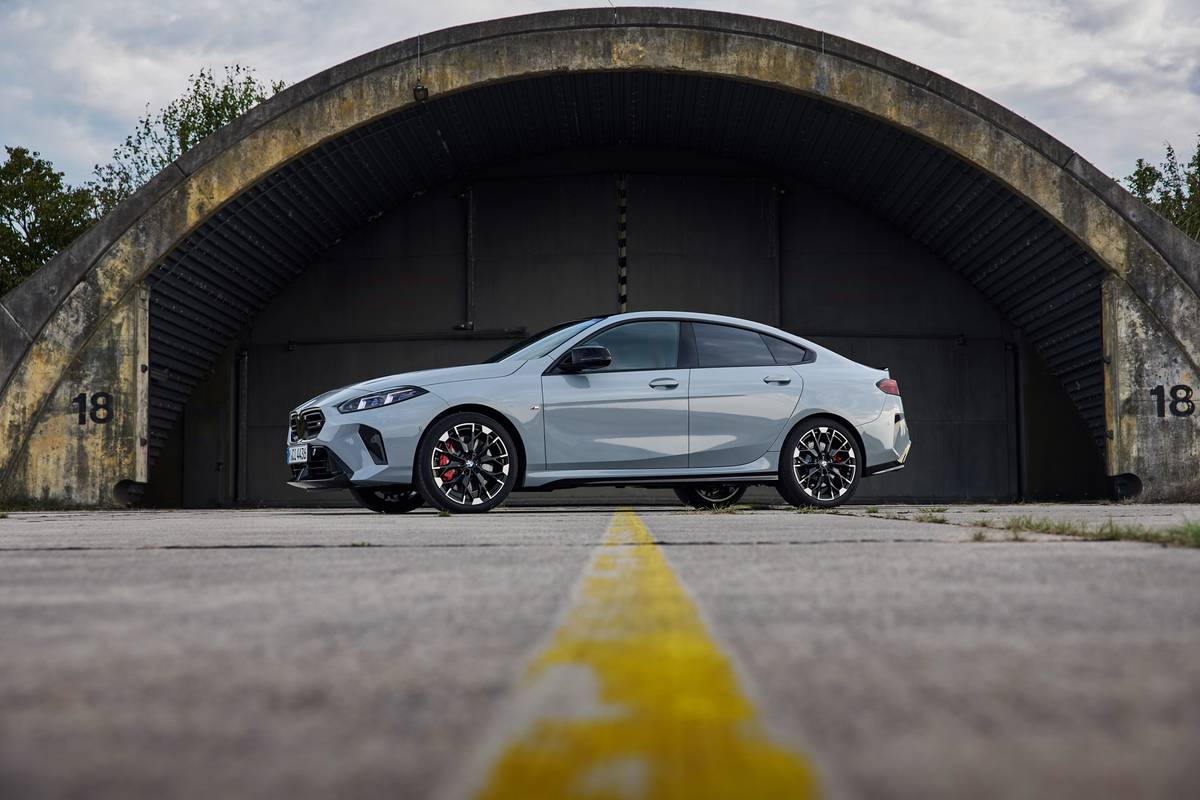The Morning Call and Mcall.com's view
Even though it is manufactured by one of the largest and oldest automakers in the world and is one of the original European sports sedans, the Peugeot is not really a well-known car. Perhaps this is due to marketing or maybe because it just fell into its own particular niche and sort of defied classification. But no matter what, the Peugeot was always a Yuppie-type car, even before Yuppies were invented.
It would probably surprise most people to learn just how far back Peugeot goes. A French company invented the cold-roll process for manufacturing spring steel in 1810 and made its first motorcar in 1889. The company also came up with some early firsts in automotive innovations, including: the first station wagon in 1894; the first ignition by battery in 1900, and in 1922 produced the world’s first diesel passenger car. (For racing fans, Peugeot is the only imported nameplate to have won the Indianapolis 500 three times).
Jumping ahead some years, the first model that sold in this country was the 403Sedan (the first good-looking French car) introduced in April, 1958. Other things worth mentioning include America’s first diesel station wagon in 1974 and, in 1980, the first four-cylinder turbocharged diesel sedan.
Since the diesel craze died out in the early 1980s, which, incidentally, found the company with just about all of its eggs in the diesel basket, Peugeot has wisely followed the performance path. This really wasn’t too much of an accomplishment since the car always had been noted as an excellent handling sedan. But it did lack a little sparkle in performance so along came the turbocharged gasoline engine and turned all of this around.
This week’s test car, the 505 Turbo (supplied by J.H. Bennett Inc., 2300 Hanover Ave., Allentown) is the best performing Peugeot to ever hit these shores. But, then, the performance/sports sedan market is a very lucrative segment of the automotive market and a very competitive one. If a manufacturer wants to sell his share, he has to offer something.
What Peugeot is offering is an improved version of last year’s Turbo engine. This fuel-injected, 2.2-liter/131 cubic inch four-cylinder engine is now fitted with a Garrett T3036 turbocharger, a smaller unit than last years, featuring a water-cooled turbine. Also new this year is an air-to-air intercooler, a relatively new innovation that has become quite popular on a number of turbocharged engines. This intercooler, according to Peugeot, reduces intake temperature by 35 degrees C, which in turn allows for a richer fuel mixture and better performance.
When all of this is added up, the engine is rated at 150 horsepower at 5,000 rpm and 181 foot pounds torque at 2,750 rpm. This is certainly sufficient power to move about the 3,220 pound 505 Sedan at a brisk clip.
Another new feature this year is a four-speed automatic transmission (a five-speed manual is also availa ble). The test car was equipped with the automatic and at first seemed somewhat slow (slower than expected) off the line and in passing. But I discovered that by shifting this automatic manually, performance was increased. The transmission offers three forward gear choices, 1-2-3, in addition to Drive (D). Dropping it in 1 and taking it through the gears to D from a standstill produced above average acceleration. Dropping it in 3 and laying on the accelerator to allow the transmission to downshift on its own, produced a fast pass. So, this is a case of having your automatic and shifting too.
Fuel mileage on the test car averaged 21 miles per gallon highway and 16 mpg city. Not bad, not great. Because of the demands of the turbocharger, unleaded premium is required.
As mentioned before, the Peugeot was always an excellent handling car. These days, many cars handle like sports sedans (even economy cars) but Peugeot was offering this even before it became fashionable. The 505 Turbo features four-wheel independent suspension, which nowadays is fairly common on front-wheel drive cars but still is a little unusual on rear wheel drive models, such as the Peugeot. Also featured are power four-wheel disc brakes, power rack-and-pinion steering, front and rear anti-sway bars, limited slip differential and low profile Michelin MXV radials mounted on 15-inch alloy wheels. In other words, all of the real goodies for a sports sedan.
The 505 Turbo has a very firm ride, which, of course, will not bother the driving enthusiast. Steering is tight, almost verging on sensitive. You don’t daydream with this car or turn around and look at passengers in the rear seat. There is virtually no play in the steering wheel and when you turn it just a little – whether by design or thoughtlessness – the 505 turns a lot – it was designed to do just this, so expect it.
The 505 is classed as a compact and has a wheelbase of 108 inches, overall length of 186.7 inches, width of 68.4 inches and height of 53.3 inches. The interior is quite comfortable and shows a high regard for driver and passengers. But, then, French cars always have been high on creature comforts. Seating is really above average. The front seats can be adjusted many different ways and feature individually controlled, internal heating elements. There are also four-way adjustable headrests all-around. Leg room is good both front and rear, and even with the sunroof, there is sufficient head room even for tall drivers.
And least we forget it, the 505 is an attractively styled car. It was designed by the Italian design studio of Pininfarina and even its five-mile- an-hour bumpers look good.
Base price on the automatic Turbo 505 is $19,505 and everything is standard. In fact, the only option available – and it was not on the test car – is leather upholstery at $700. With a destination charge of $350 and a port preparation feeof $24, full price on the test car came to $19,880. Sport car fans might be interested in the five-speed manual transmission version which has a base of $18,970.
The 505 Turbo is covered by strong warranties – a three-year/36,000 mile warranty, backed by a five-year/50,000-mile warranty on the powertrain.
Latest news



